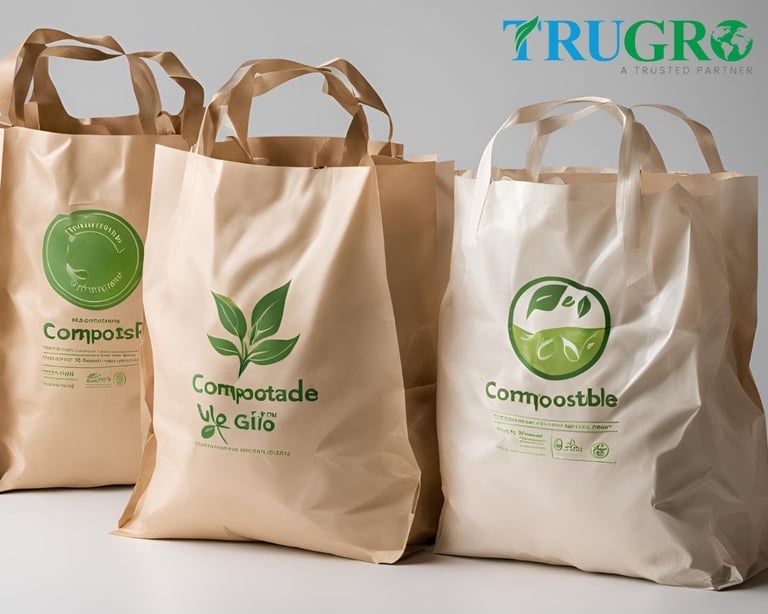The Science Behind Compostability
Let's understand how compostable products decompose and benefit the environment.
Nitin Sharma
1/2/20242 min read


Compostable products are materials designed to break down into natural elements like water, carbon dioxide, and nutrient-rich compost under specific conditions. Unlike conventional plastics that can persist in the environment for hundreds of years, compostable products leave no toxic residues and significantly reduce environmental impact.
The key to compostability lies in their composition: they are made from renewable resources such as cornstarch, sugarcane, and other plant-based materials. These products undergo a decomposition process that mimics nature’s recycling system, transforming waste into valuable resources.
The Composting Process: Turning Waste Into Gold
Composting is a biological process in which microorganisms such as bacteria and fungi break down organic matter under controlled conditions. The process can take place in two primary environments:
Industrial Composting:
Industrial composting facilities provide controlled conditions of heat, moisture, and aeration to accelerate decomposition. Temperatures in these facilities typically exceed 55°C (131°F), ensuring the breakdown of tough bioplastics like PLA (Polylactic Acid).Home Composting:
Home composting operates at lower temperatures and is suitable for smaller-scale organic waste. While many compostable products decompose faster in industrial settings, some are also designed for home composting, making them accessible for everyday users.
The result of both processes is humus, a nutrient-rich material that can be used to enhance soil fertility.
Environmental Benefits of Compostable Products
Reduction in Landfill Waste:
Compostable products divert waste away from landfills, where organic materials often break down anaerobically, releasing methane—a potent greenhouse gas.Lower Carbon Footprint:
Since compostable products are made from renewable resources, they help reduce reliance on fossil fuels, leading to lower carbon emissions during production.Enrichment of Soil:
The compost generated from these products enhances soil fertility, improves water retention, and reduces the need for chemical fertilizers, promoting sustainable agriculture.Prevention of Plastic Pollution:
Unlike traditional plastics that contribute to ocean and land pollution, compostable products degrade naturally, safeguarding ecosystems.
As businesses and consumers prioritize sustainability, compostable products are becoming a vital part of the global effort to combat waste and climate change. For B2B buyers, transitioning to compostable materials is not just an environmental imperative but also a strategic decision that aligns with growing consumer demand for eco-friendly solutions. Interested buyers can explore wide range of Trugro's compostable products
Investing in compostable products is an investment in the planet’s future. By embracing these materials, businesses can play a pivotal role in reducing waste, enriching soil, and building a sustainable tomorrow.
MORE UPDATES ON
Home
At Trugro Exporters, we envision a world where businesses and consumers can thrive without compromising the well-being of our planet. Join us on our journey to make a positive impact—one sustainable solution at a time. Together, let’s create a future where nature and innovation flourish hand in hand.
FAQs